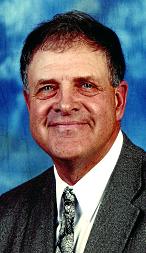 |
 |
 |
 |
 |
 |
 |
 |
 |
 |
 |
|
|
|
|
|
|
|
|
|
|
|
|
 |
|
 |
|
 |
|
|
|
|
|
|
|
|
|
|
|
|
|
|
|
|
(Continued from page 27)
tion and conservation, while having piece of mind that they can continue to farm, ranch or manage forests into the future.
• In the days ahead, we will remain focused on creating new markets and new opportunity across rural America - and we won't let up in our efforts to boost recreation in our country's great outdoors.
|
|
|
|
|
|
|
|
 |
|
|
|
|
|
|
This Week in Pierre
• Now in our third week of the 2013 Session, we are in full swing with reviewing bills in committees. I serve on House Agriculture and House Transportation. I'm also starting to provide testimony to other committees, especially on legislation for which I am a prime sponsor.
• I'll take this opportunity to talk to you about one such bill. This is Senate Bill 129 and it is working to provide a more equitable share of the tax burden which comes when municipalities or counties establish Tax Increment Financing (TIF). Many of you know that I served as a County Commissioner in Brown County for 20 years. I understand the financial burdens to a county, especially in these times of cuts in resources from both the state and federal governments.
• South Dakota law provides for a TIF to be established. It is
|
|
|
|
|
|
|
|
|
|
|
|
|
|
|
|
|
|
|
a fairly common practice used by government entities to try and spur economic development. TIFs work when bonds are issued for certain infrastructure improvements. Future property tax payments are used to retire the bonds. The idea is to use future gains in taxes to subsidize current improvements, which are projected to create the conditions for increases in future property tax revenue. (Simple scenario: New business comes to town building a new property and bringing more employees/homeowners and hence more property tax revenue).
• The fairness issue in TIF establishment comes into play because a city may issue a TIF but it falls upon the county to service the debt. SB129 would change that by making sure that any tax incremental district created by a municipality or county after July 1, 2013, would be funded entirely by the entity creating the district.
• As current law stands, the county may get stuck with servicing the bond even when it was initiated by a municipality and not the county itself. If the cost of basic services increases, as is often the case in needs for counties to fix the roads and (Continued on page 29)
|
|
|
|
|
|
|
|
|
|
|
|
|
 |
|
|
 |
|
